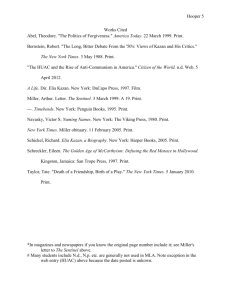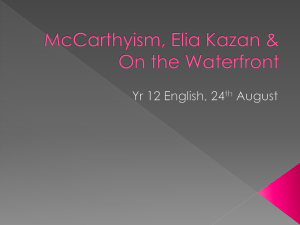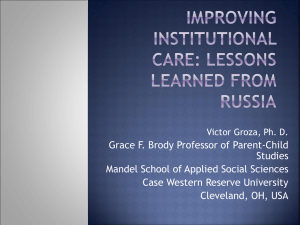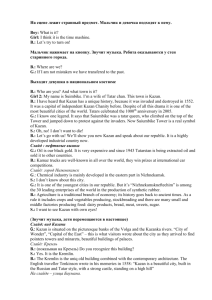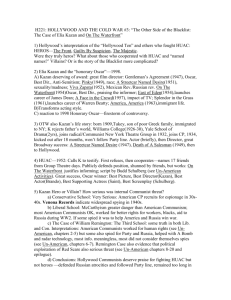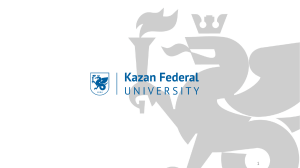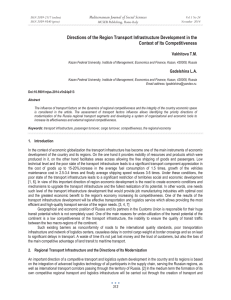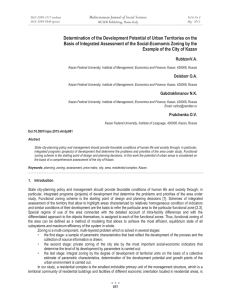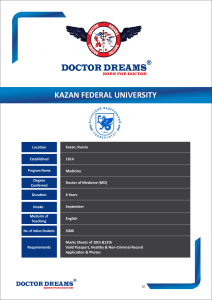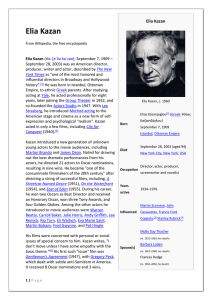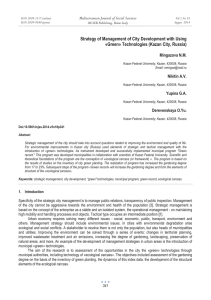My city - Learning Circles
advertisement
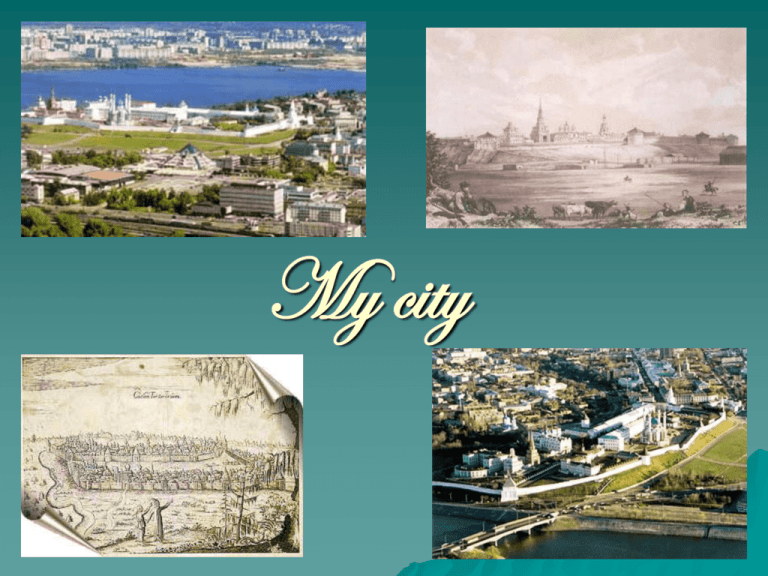
My city Submitted for: Places and Perspectives Middle School Learning Circle 1 (PPM1) with iEARN, Spring 2009 Submitted by: Grade 6 “B”,Gymnasium № 2 named after Shigabutdin Marzhani,Kazan , Russia: Mukhutdinov Airat Mustafina Aigul Kamalov Almaz Sibgatullina Sumaya Students who also helped included: Sharafutdinov Tagir, Grade 9 “V” Porfiryeva Albina, Grade 9 “V” Special thanks to Elena Babina, Gubkin Location of Republic of Tatarstan on the map of Russia. Coat of Arms of Tatarstan Flag of Tatarstan The map of the Republic of Tatarstan. Kazan is the capital city of the Republic of Tatarstan and one of Russia's largest cities. Kazan lies at the confluence of the Volga and Kazanka Rivers in central European Russia. The origin of the name is unclear. The literal translation of the Tatar word qazan is a boiler or cauldron. Alternately, it may have been derived from qazğan, Tatar for dug [ditch]. "Qazan" is originally a name for a special cooking pan, a variant of a wok, but more solid and heavier. It was believed that the city of Kazan is named after this object because of its geographical similarity with a "qazan"-pan; namely the city is situated in a U-shaped lowland. The place where West and East meet Kazan is the home of people of many nationalities and religions Suyumbike Tower is the pearl of the Kazan Kremlin . Here is the legend about the Suyumbike Tower. Moscow tsar (King) Ivan the Terrible knew about the beauty of the Tatar Queen. He wanted to marry her. He built a beautiful tower for her. Another legend says that the Kazan people called the tower after Suyumbike who said “no” to the Moscow tsar. It was very hard for Suyumbike to leave Kazan and become the Russia tsarina (Queen). She went to the top of the tower, looked around for the last time and threw herself down on the sharp stones… Oh my language, native language! You’re my soul and you’re my heart. Many things I’ve learnt in this life, Through my language, through my tongue… G.Tukai Kazan State University Kazan is one of the biggest scientific and educational centers of Russia and the second biggest city by the number of students. About 10 000 young people finish secondary schools every year. Approximately 120 thousands study in 30 institutions of higher education and 23 schools and colleges. The Kazan State University, one of the oldest sites of learning of Russia, celebrated its 200th jubilee in 2004. One of the most important peculiarities of education is the possibility to study in one’s native language in accordance with the “Program of Conservation, Learning and Development of Language of people, living in the Kazan city”. We are extremely proud of our hockey and football players
